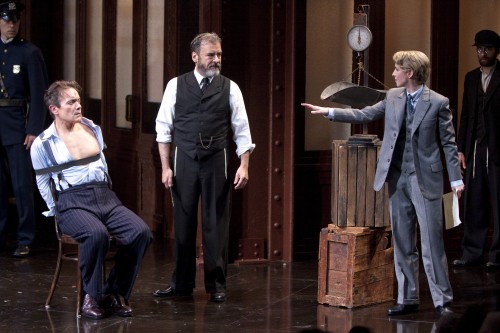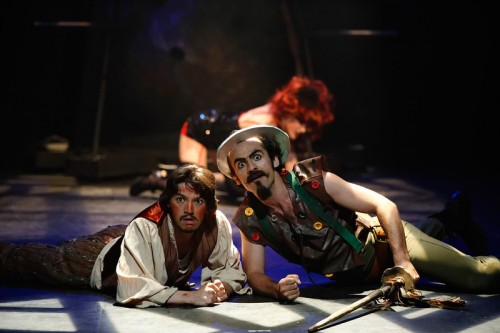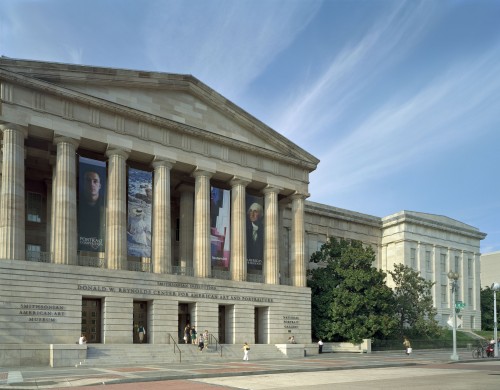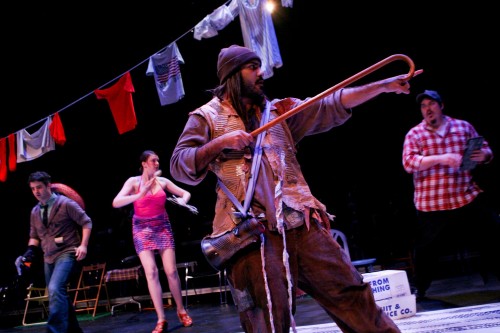
Derek Smith as Antonio, Mark Nelson as Shylock and Julia Coffey as Portia in the Shakespeare Theatre Company’s production of The Merchant of Venice, directed by Ethan McSweeny. Photo by Scott Suchman.
We come to a performance of The Merchant of Venice with a lot of preconceptions. One of them has to do with the title itself. It doesn’t refer to its most famous character, I remember a brilliant English professor beating into my brain. “Shylock isn’t the merchant,” he said repeatedly, “Antonio is.”
Antonio? Wait, who? That confusion wasn’t resolved by many productions I’ve seen, where either played as a straight villain or as a decent man tortured by institutional prejudice, Shylock reigned as the central focus. But as seductive as he is, especially to the modern sensibility that wants so badly to reconcile the beauty and insight of Shakespeare with the cruel racism inherent in many lines, protagonist he isn’t.
One of the chief joys of director Ethan McSweeny’s sprawling production now playing at the Shakespeare Theatre Company is the restoration of Antonio as the merchant of Venice. Derek Smith’s economical portrayal, containing the character’s melancholy and self-loathing within the cool veneer of commerce and charisma, is revelatory. And it’s made possible in large part by the risk of placing the action in a Venice that resembles 1920’s New York City, so that the merchants sip espresso after espresso like Little Italy denizens and the Rialto Bridge becomes a magnificent staircase suggesting a subway overpass.
By setting the action here, somehow it becomes more Venetian – the bustle of business, the hint of corruption, the glamorous sheen that barely hides a seedy decay. Sweeney nails the big picture, but gives equal weight to the quiet moments. There’s so much rich interplay in this production it’s hard to know where to look. Not all of it is perfectly realized, but there’s much to admire.
Continue reading →



















